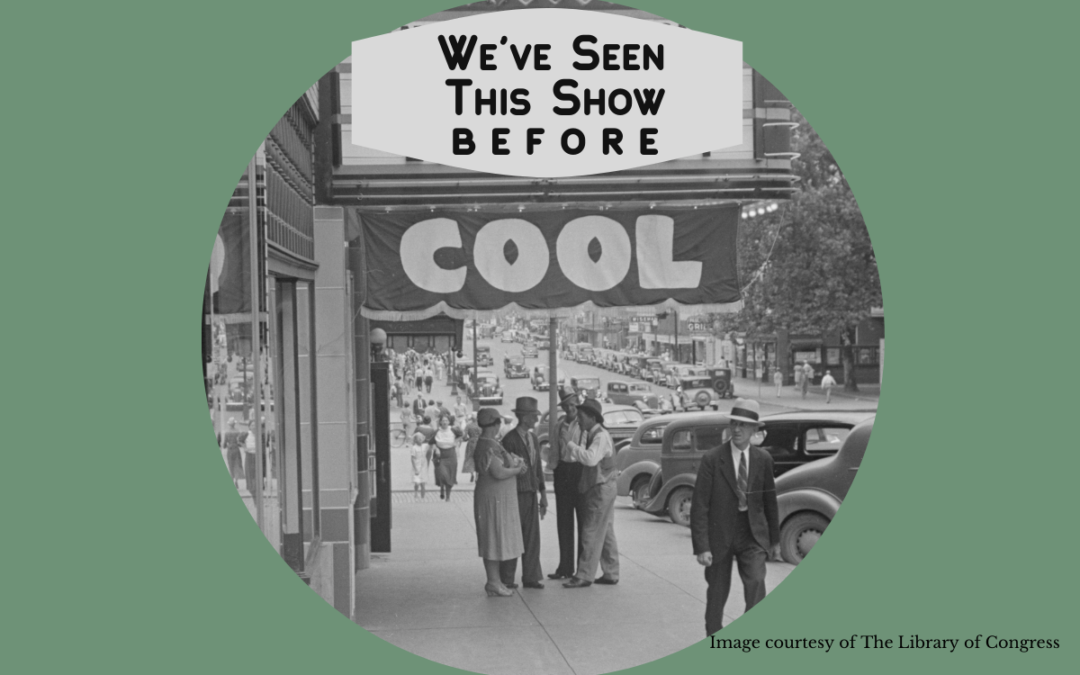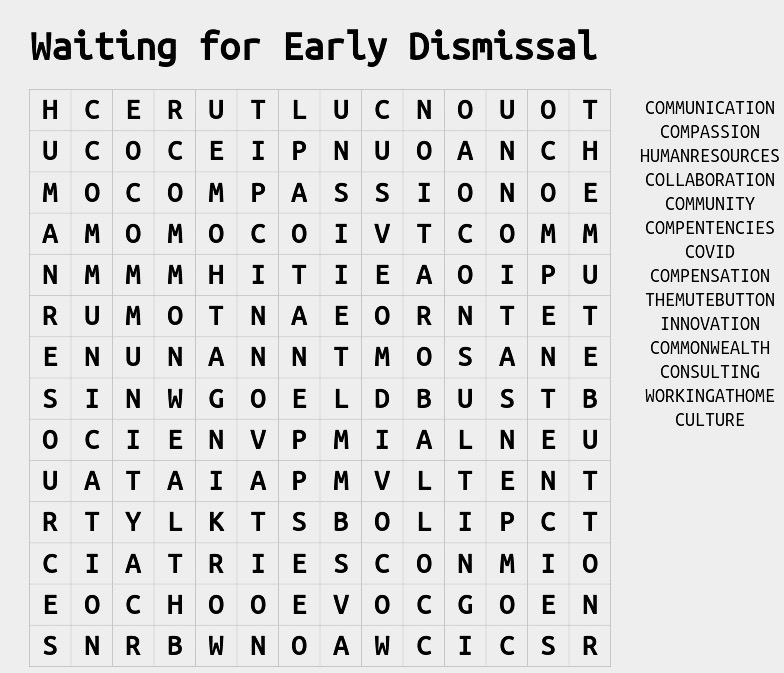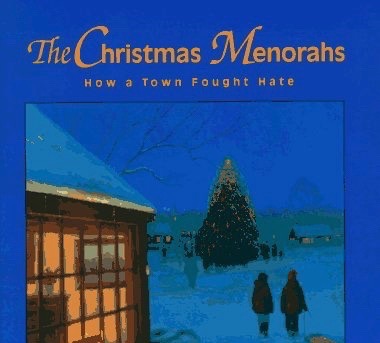
by Kate Evert | May 24, 2022 | Community, Corporate Culture, Economy, Labor Markets, Recruiting
When this headline appeared … what came to your mind?
If you’re from Pennsylvania, did you think of Hershey?
If you’re from Chicago, did you think of Pullman?
Some might have some less-than-charitable thoughts about company housing.
If you are a fan of Cadbury’s chocolate, you might know all about the sweet village that the company constructed for their workers in Bournville, England (which inspired Hershey). One of Unilever’s predecessors, Lever Brothers, also had a stellar community built for their workers called Port Sunlight.
It seems to be a toss-up to determine where the first company-sponsored housing was built: Quarry Bank Mill (near today’s Manchester airport) or New Lanark in Scotland, were both founded in 1784 and both provided housing and better nutrition than was the norm at the time. The cottages pictured were built in 1824 as housing for the Quarry Bank Mill near Manchester.
Seems the owner of New Lanark might have devised the original economic development deal as well. The owner lured a boat load, literally, of people that had been emigrating to North Carolina when their boat crashed. Stay here, and I’ll give you a job AND housing.
Seems some things never change …

by Kate Evert | Nov 30, 2021 | Community, Human Capital, Inspiration, Leadership, Management, Sacrifice
Many of us have probably spent the last week or so reflecting on the things that we are thankful for … I wonder how many of us went beyond food, clothing, and shelter to spare a few moments for the mentors in our life?
Some of us have been blessed with amazing mentors. The extremely lucky have been blessed with several outstanding mentors. Recently, a group of fortunate people assembled to celebrate the life of an amazing man who had been an outstanding one to so many – from attorneys to adolescents to apprentice advocates.
Without ever having met the man, I was nevertheless touched by all I heard and reflected upon what his mentorship had meant for so many, including many people I know. Without his generosity, one of my high school classmates wouldn’t have sat in front of me, class after class, and probably wouldn’t be a doctor today. Without his tutelage, many a current judge wouldn’t be on the bench, meting out just justice. Today there are businesspeople, not-for-profit leaders, and educators, who pursue their life’s work influenced by his work ethic, wisdom, and wit. It seems that this gifted, good, and generous man understood the part that luck and a break or two had played in his own life and felt that others were entitled to the same. For so many assembled, they credited his influence that started at a very young age, many times as their after-school job in high school.
We tend to think that a mentor comes later in life, as part of a formal workplace program. Tim Ryan, current US Chair of PwC, often tells a pivotal story in his life, career journey, and management approach – that came from his boss at his high school job in a grocery store. That only reinforces how early these lessons CAN be learned, and perhaps SHOULD be learned.
As this crazy year comes to an end, here’s hoping that you have time to reflect on a mentor or two in your own life. If you haven’t been lucky enough to ever have one, or an amazing one, perhaps resolve to become one for someone else? It might be that break, that chance, that bit of luck, that changes their outlook … or even the outcome of their life.

by Kate Evert | Jul 13, 2021 | Community, Compensation, Economy, Hiring, Human Capital, Inspiration, Jobs, Labor Markets
Lots of the country has been suffering from blistering heat.
Back in the days before most homes had air conditioning there was one really good way to escape the heat.
The movies.
If you weren’t around in 1947, you, too, may have missed “The Best Years of our Lives” which won multiple Oscars that year, including Best Picture and Best Director for William Wyler. The story begins with the unceremonious way in which three returning WWII veterans must find their way back to their shared hometown, bonding in the process. As the story unfolds, the viewer realizes that pre-war life didn’t necessarily dictate war-time rank, and that being a hero in one uniform, might not translate stateside. After watching our essential workers, who were called heroes at the height of the pandemic, it was uncanny to watch a wartime hero strive to earn a living wage once the conflict was over.
While there seems to be no excuse for NOT having seen this movie before, watching it now, as the U.S. is emerging from our battle with Covid, seems eerily fitting.
We’ve all been telling ourselves that never before have we had to deal with such a crazy labor market. That people have never had to readjust after such a life and death struggle; so many have lost loved ones. What about those that might never be 100% healthy again? How does our society and business world work around that? What about folks that have skills that are obsolete? How are workers supposed to retrain and reskill yet again?
Whether you are trying to escape the heat, sit out a rainy weekend, or finally understand why everyone raves about William Wyler and his films, “The Best Years of our Lives” will knock your socks off.
The U.S. has seen this show before, and after watching this movie, you will feel the resolve that we can get through this again, despite all of our collective wounds.

by Kate Evert | Feb 16, 2021 | Community, Diversity, Equity, Inclusion, Inspiration, Leadership
What do you think when you see this image?
Some may think this is a very overused image.
Perhaps it’s a cliché. It’s over-done. It over-simplifies something that isn’t simple at all.
But about two years ago, those of us in Chicago learned, or re-learned, how a group of young white men from Mississippi sent a decoy group to board a plane, then drove out of their way, across their state border, and came to the frigid north in March, just so they could play a ball game.
And that meant a white player shaking hands with a Black player at center court. For the whole country to see. Including the Governor of Mississippi who had forbid them to leave their state precisely because he didn’t want them to compete with Black athletes.
When Loyola beat Mississippi State, the Chicago school went on to win the NCAA championship; so far, the only Chicago college to capture such an honor. A stirring reminder of that achievement reverberates throughout Loyola’s Gentile Arena whenever the Ramblers reach 63 points: the student section chants “six – ty three, six – ty three.”
Many have argued how significant or insignificant that game was. Against a backdrop of Civil Rights issues that were yet to be addressed, and the violence and economic hardship that continued, how much did that game change?
But in 2011, when Jerry Harkness attended Joe Dan Gold’s funeral in Kentucky, there, next to the casket was a picture. It was from 1963, of the two of them shaking hands at the beginning of the “Game of Change” – a game that the Governor had tried to stop by issuing an injunction, and that had been overridden by a handshake.

by Kate Evert | Dec 22, 2020 | Community, Creativity at Work, Innovation, Leadership, Sacrifice
I don’t know about you, but the last time I had this feeling about a year ending was probably 4th or 5th grade. In grade school, some of your personal heroes were the room mothers. They showed up at key dates: Halloween, the last day before winter vacation, and Valentine’s Day. I associate room mothers with sprinkles, you know the kind you find on cupcakes or amazing sugar cookies.
But the most important day that they refereed was that last day of school before winter break. Because the only thing that stood between a bunch of kids getting out of school for two whole weeks was that sugar infused party, complete with sprinkles.
Now this is when we take pity on any grade school teacher. Those poor teachers spent the entire morning trying to calm a class full of children that acted as though they had already ingested a container full of sprinkles before they even got to school. We wriggled in our seats, barely able to contain our excitement …. if it had snowed outside, the distraction reached new heights. So, in an effort to keep us in our seats those poor teachers, who we might add were completely exhausted from trying to teach an entire semester, thought that they would outwit us, by giving us games and puzzles instead of work to keep us occupied until those room mothers showed up.
We’d sit there with our pencils in our fingers and start on the worksheets. We quickly figured out the teacher had tricked us into doing some math before we could color in a winter scene, or do a word search to review our spelling words from first semester.
In tribute to all those teachers from our childhood, and all of those teachers who have been coping as best they can in the fall semester of 2020, here’s a word search in hopes that this just might distract you for just a couple minutes as you wait with fingers crossed, hoping that the principal will get on the intercom and let us out with early dismissal from this year.

by Kate Evert | Dec 15, 2020 | Community, Covid-19, Diversity, Equity, Inclusion, Innovation, Inspiration, Leadership, Strategy
December is a tough time of year.
I do not like the days getting shorter.
In typical Decembers, I do not like the craziness of holiday shopping, the hectic nature of too many invitations jammed into the early part of the month, and the frantic feeling BEFORE December 25th. But what I do enjoy about December? Candles and lights. The more candles and the more lights, the better.
Several years ago two wonderful authors entered my December. One wrote a moving children’s book and the other discussed how she, as part of an interfaith family, embraces December. The children’s book that I discovered, and delighted reading as a library volunteer, is called The Christmas Menorahs How a Town Fought Hate. It’s a true story from 1993, when Billings, Montana took a terrible hate incident and used it as both a teachable moment, and a moment of united defiance against hate. I then heard Chicago author, Barbara Mahany, discuss how she treasures the December darkness as deeply spiritual, as a way to go inside, to shut out the early December hecticness, to embrace the two candle-centric holidays that her family celebrates. In turn, I now cherish our Advent wreath that burns brighter as the days grow dimmer.
In this December of 2020, when most of the world is facing a darker December than most, when we could all benefit from lighting as many candles in the darkness until the vaccine lightens the darkness for us, perhaps you can find this special holiday book, and read it to a young person in your life? Or perhaps, in need of hope and light, you can just read it yourself to reaffirm that light is indeed stronger than darkness.






